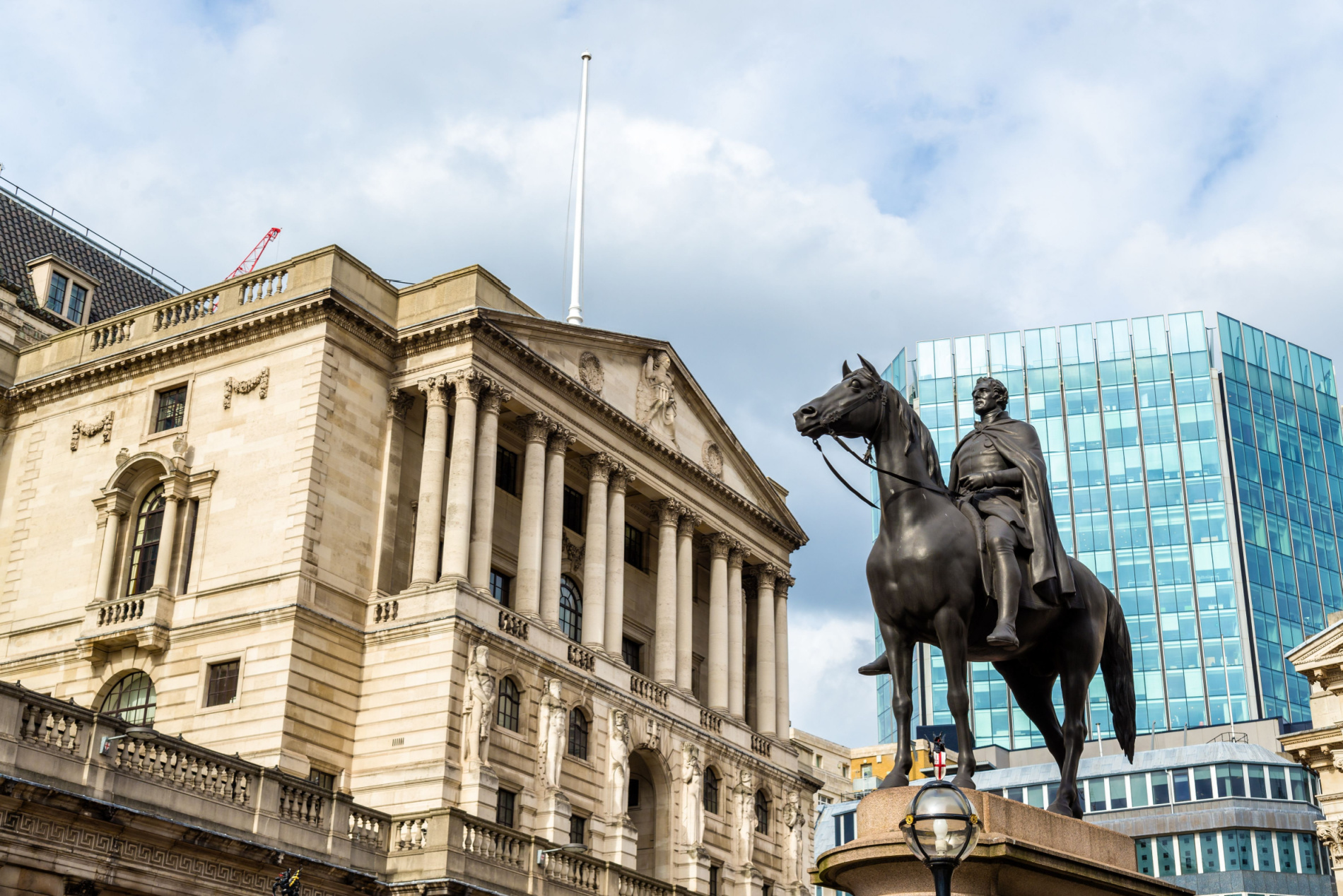Weekly Briefing: Rising Government Debt, Pension Investment Pressure, Record IHT Receipts & Growing Chinese Stakes
This week’s briefing highlights four key stories shaping the fiscal outlook for businesses and investors as we approach the end of the first month of Q2.
We begin with rising government borrowing and a record-high inheritance tax haul. Then, Rachel Reeves’s proposal to unlock £50 billion of pension capital. Meanwhile, Chinese investment in FTSE 100 companies has surged by 40%.
Across the Atlantic, the S&P 500 moved sideways once again, held in check by speculation over a Fed rate pause and mixed earnings reports. Despite the quiet surface, volatility remains high, underscoring that, historically, long-term patience often outperforms in unsettled markets.
Read on to uncover some of the latest developments influencing the UK economy and investment landscape.
Public sector borrowing jumps as fiscal pressure mounts
- The UK’s public sector net borrowing reached £151.9bn in the year to March, exceeding the Office for Budget Responsibility’s forecast by £14.6bn and marking a £20.7bn year-on-year increase, seemingly driven by higher debt servicing costs and stagnant revenues.
- That borrowing figure translates to over £70,000 per UK household, a stark reminder of the fiscal strain facing the government, especially with public services, welfare demands, and defence spending all under increased pressure.
- Simultaneously, the IMF downgraded the UK’s 2025 growth forecast to 1.1%, citing weakening global demand, trade fragmentation, and the early impact of US-led tariffs — factors that will likely put even more strain on already-stretched public finances.
- This global backdrop is colliding with domestic challenges: inflation expectations were revised up to 3.1%, forcing the Treasury to factor in slower disinflation and the potential for prolonged interest rate pain as part of its autumn budget calculations.
- Economists now warn that the Chancellor’s already limited fiscal headroom may not be enough to absorb both rising costs and the demands of increased borrowing, which is sparking early talk of spending cuts or targeted tax rises to shore up credibility.
- “The public finances were already in a difficult position heading into the trade war,” said Pantheon Macroeconomics’ Elliott Jordan-Doak. “Trump’s tariffs now mean a likely hit to GDP growth this year and next, which will further weigh on the public finances.”
Reeves presses pensions for £50bn UK investment
- Labour’s Rachel Reeves is preparing to announce a £50bn voluntary compact with pension funds to invest in UK-based unlisted assets by 2030 — a key plank of her growth-first economic agenda and part of a broader push to revitalise domestic capital markets.
- The plan, developed in close partnership with the City of London Corporation, would see major pension providers commit 10% of retirement savings to private markets, with at least half directed toward UK assets, such as infrastructure, startups, and regional development zones.
- However, the policy has sparked debate over fiduciary responsibility and long-term returns, with some providers, including M&G and Scottish Widows, initially hesitating — though pressure from the Treasury appears to have swayed most to sign on.
- Rather than legislate investment mandates, the Treasury aims to foster confidence by expanding the pipeline of “investable propositions”, encouraging providers to back UK projects without compromising on their risk-return obligations.
- Reeves’ strategy goes hand in hand with her ambition to consolidate pensions into large “super funds” of £25–50bn, enhancing scale and efficiency while giving these funds a more significant role in financing national priorities like clean energy and advanced manufacturing.
Inheritance tax hits record £8.2bn amid reform fears
- Inheritance tax receipts surged to £8.2bn in 2024–25, according to fresh HMRC data — a record high and a clear sign that rising property values and frozen thresholds are steadily pulling more families into the tax net.
- This comes as the Chancellor prepares to implement a series of changes that will widen the IHT base, most notably by bringing pensions into scope from 2027 and slashing reliefs for farmers and small business owners.
- The impact is expected to be deeply felt in rural communities: from 2027, landowners will pay 20% IHT on assets above £1m, which critics say could force land sales and disrupt intergenerational transfers across farming families and estate-based businesses.
- Treasury projections suggest that by the end of the decade, 10% of estates will pay inheritance tax, more than double the share seen when the nil-rate band freeze began in 2022 — a shift that’s fuelling demands for reform from both opposition and industry bodies.
- Financial planners are now warning clients of possible further tightening in the Autumn Budget, with speculation that the seven-year gifting rule may be shortened or exemptions narrowed — especially if broader tax receipts fall short.
- “Extended financial market turmoil and a possible recession could hit tax revenues… Treasury minds will wander towards further areas that can be tapped,” said Ian Dyall, head of estate planning at Evelyn Partners.
- As Inheritance Tax (IHT) becomes a growing concern for more individuals, finding effective ways to reduce the burden is just as important. Fortunately, there are several strategies available—many of which are covered in our free IHT guide.
Surge in Chinese investment raises sovereignty concerns
- Chinese investors, including the People’s Bank of China and the China Investment Corporation (CIC), have increased their stakes in FTSE 100 firms from £64 billion in December 2022 to £88 billion today, a near 40% jump that now represents roughly 5% of the index’s £2.1 trillion market value.
- Defence firms are prominent targets: Chinese funds own substantial shares in BAE Systems, Rolls-Royce and Babcock, all of which underpin the UK’s Trident deterrent and military maintenance. These companies carry “golden shares” enabling the government to veto takeovers, underlining national security sensitivities.
- Although no single stake is large enough to destabilise markets if divested, the aggregate flow of hundreds of millions in annual dividends back to Beijing highlights the financial as well as strategic implications of foreign ownership in critical UK assets.
- Beyond equities, Chinese capital has financed major infrastructure: CIC owns 10% of Heathrow Airport, and investments back the Hinkley Point nuclear plant, UK Power Networks and Northumbrian Water—linking financial influence with long-term operational control.
- “Thanks to the UK’s strong transparency laws, we’re able to see that investors from China hold a healthy stake in a broad range of Britain’s largest listed companies,” says Susan Baldry of Argus Vickers, warning that true influence often lies behind the scenes.
Final Note
This week’s data paints a complex picture for the economy and investors alike.
Record borrowing and inheritance tax receipts highlight growing fiscal pressures for both the government and UK individuals, even as the drive to channel £50 billion of pension capital into UK projects signals renewed policy ambition.
For investors, the key may be balancing the promise of long-term structural bets in technology, infrastructure, and private markets against the ever-present risk of geopolitical volatility. As ever, patience and diversification remain vital pillars in hedging against an ever-shifting fiscal backdrop..
%20(3)%20(2).jpg)








